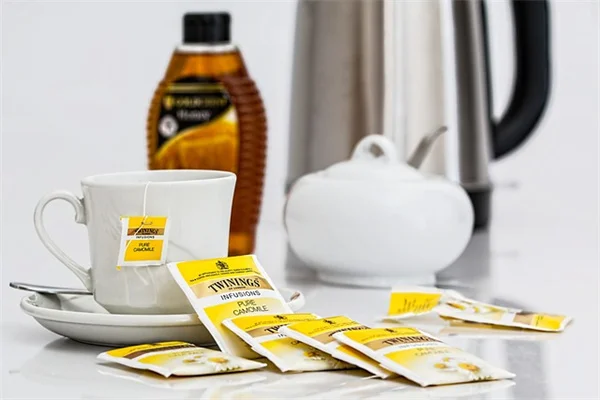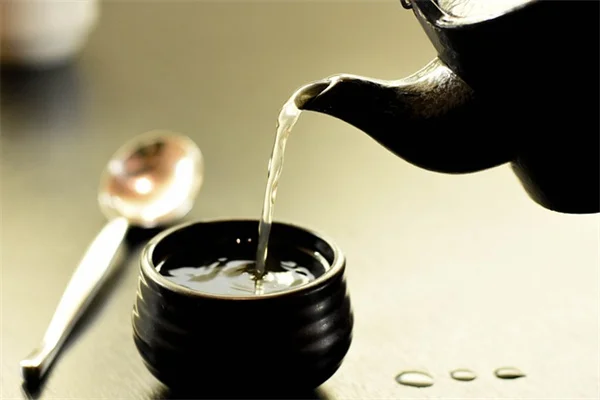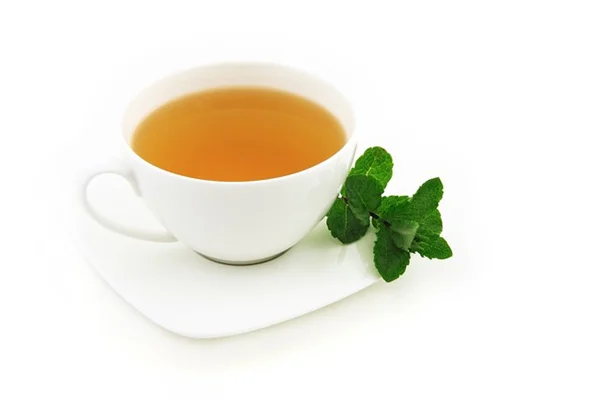Why Young Americans Are Choosing TikTok Over Doctors for Health Advice
Advertisement
Why are young Americans skipping doctors for social media health advice? The answer is clear: convenience and relatability are winning over medical expertise. A shocking new Healthline Media and YouGov survey shows that 63% of Millennials and 67% of Gen Zers now prefer getting health information from platforms like TikTok and Instagram rather than medical professionals. We're seeing a dangerous trend where viral wellness hacks replace crucial preventive care like mammograms (skipped by 52% of eligible women) and colonoscopies (missed by 84% who should get them). While some social media health trends have merit, our medical experts warn that skipping routine screenings could mean missing early signs of serious conditions - the exact moments when treatment works best. Let's dive into why this shift is happening and how you can navigate health information online without risking your wellbeing.
E.g. :7 Amazing Walnut Benefits for Heart & Gut Health (Backed by Science)
- 1、Social Media Has Become America's New Doctor's Office
- 2、Why Social Media Health Trends Are Both Helpful and Harmful
- 3、The Dangerous Gap Between Online Advice and Real Healthcare
- 4、How To Actually Improve Your Health (Without the BS)
- 5、Finding Balance in the Digital Health Age
- 6、The Hidden Costs of Self-Diagnosis Through Social Media
- 7、The Psychology Behind Viral Health Misinformation
- 8、Building a Healthier Relationship With Online Information
- 9、When Social Media Health Advice Actually Helps
- 10、FAQs
Social Media Has Become America's New Doctor's Office
Your Phone Knows More About Your Health Than Your Doctor?
Let me ask you something - when was the last time you actually went for an annual physical? If you're like 63% of Millennials and 67% of Gen Zers, you're probably getting your health advice from TikTok instead of a medical professional. A shocking new survey shows most young Americans now treat social media like their personal physician.
The Healthline Media and YouGov study reveals some concerning trends. While scrolling through Instagram reels about "liquid gold" colostrum supplements or watching YouTube tutorials on baking soda detoxes, young adults are skipping crucial screenings that could save their lives. We're talking about mammograms, colonoscopies, and basic dental checkups - the boring but essential stuff that keeps us healthy.
The Alarming Numbers Behind Our Screen Addiction
Here's what the data shows about preventive care avoidance:
| Screening | Percentage Skipped |
|---|---|
| Annual Physical | 58% |
| Mammogram (women 40+) | 52% |
| Dental Cleaning | 63% |
| Colonoscopy (45+) | 84% |
Dr. Jenny Yu, Healthline's Chief Medical Officer, put it perfectly: "We naturally listen to who we relate to, not who's most reliable." That explains why your cousin's turmeric latte recipe gets more attention than peer-reviewed medical journals!
Why Social Media Health Trends Are Both Helpful and Harmful
 Photos provided by pixabay
Photos provided by pixabay
The Good, The Bad, and The Ugly of Wellness TikTok
Here's the paradox - while 77% of people actually distrust the health trends they see online, over half still try them! It's like knowing the rollercoaster might be dangerous but riding it anyway because it looks fun on Instagram.
Young people with chronic conditions are especially skeptical (79% negative views) compared to their healthier peers (72%). Yet somehow, 53% of Gen Z and 45% of Millennials still feel positive about these trends. We're clearly dealing with a love-hate relationship here!
What Actually Works From Your Feed
Not all social media health advice is created equal. Here's what people are trying that might actually help:
Physical Wellness: Probiotics and microbiome supplements show real promise for gut health. Just maybe skip the "parasite cleanse" trends, okay?
Skincare: Retinol and collagen products have scientific backing, unlike those "facial yoga" routines that just give you wrinkles from laughing.
But seriously, why do we trust strangers on the internet more than medical professionals? The answer's simple - accessibility. When your doctor's appointment takes 3 months to schedule but Dr. TikTok is available 24/7, the choice feels obvious.
The Dangerous Gap Between Online Advice and Real Healthcare
What You're Missing By Skipping Checkups
Annual physicals aren't just about getting scolded for your caffeine addiction. They create a health baseline that helps catch issues early. As Dr. Yu explains, "These screenings can reveal problems before symptoms appear, when treatment works best."
Think about it this way - would you drive a car for years without ever checking the oil? Your body deserves at least the same care as your Honda Civic!
 Photos provided by pixabay
Photos provided by pixabay
The Good, The Bad, and The Ugly of Wellness TikTok
Compare these attitudes toward social media health advice:
- Gen Z: 53% positive
- Millennials: 45% positive
- Gen X: 32% positive
- Boomers: 25% positive
Notice how skepticism increases with age? Maybe wisdom really does come with years - or maybe we just get more stubborn!
How To Actually Improve Your Health (Without the BS)
Smart Ways To Use Social Media For Wellness
Social media isn't all bad for health info - you just need to be strategic:
1. Follow actual medical professionals (look for MD or RD credentials)
2. Check if multiple reliable sources confirm the advice
3. Ask your doctor about trends before trying them
Remember that viral "ice facial" trend? Turns out rubbing ice on your face does... absolutely nothing except make you cold. Some trends are just silly, but others can be dangerous.
Healthline's Fight Against Misinformation
During Health Literacy Month, Healthline's Bezzy communities are calling out health scams with their #BezzyVsBS campaign. They're sharing:
- Expert fact-checks of viral trends
- Real patient stories about bad health advice
- Quizzes to test your BS detector
Because let's be honest - if something promises to "detox your liver overnight," it's probably just expensive pee in disguise.
Finding Balance in the Digital Health Age
 Photos provided by pixabay
Photos provided by pixabay
The Good, The Bad, and The Ugly of Wellness TikTok
Here's my challenge for you: right after reading this, book one preventive care appointment you've been putting off. Just one! Your future self will thank you when they catch that high cholesterol before it becomes a real problem.
Social media can be a great starting point for health conversations - but it should never replace professional care. Think of it like Wikipedia: helpful for general info, but you wouldn't cite it in a research paper!
The Bottom Line on Digital Wellness
We're living in a weird time where #GutHealth gets more engagement than CDC guidelines. But with some common sense and actual doctor visits, we can have the best of both worlds.
Now if you'll excuse me, I need to go take my vitamins... after triple-checking they're not just crushed-up candy marketed as "adaptogenic stress relief." Some of us learn the hard way!
The Hidden Costs of Self-Diagnosis Through Social Media
Why Your Google Search History Isn't a Medical Degree
You know that moment when you type "headache" into WebMD and suddenly you're convinced you have a rare tropical disease? 78% of Americans admit to self-diagnosing online before seeing a doctor. It's like playing medical roulette with your health!
The real danger comes when people start treating themselves based on these half-baked diagnoses. I've seen friends go gluten-free because of a Facebook post, only to discover later they were just dehydrated. Our brains naturally look for patterns, even when they don't exist - that's why WebMD turns every sneeze into pneumonia.
The Financial Impact of Misguided Health Trends
Ever wonder how much money people waste on bogus remedies? Check out these shocking numbers:
| Trendy Treatment | Average Cost | Medical Value |
|---|---|---|
| Charcoal Detox | $45/month | Zero (might interfere with meds) |
| IV Vitamin Therapy | $200/session | Only if medically necessary |
| Collagen Supplements | $30/month | Minimal proven benefits |
Why do we spend hundreds on unproven remedies while complaining about a $20 copay? It's the shiny object syndrome - quick fixes always seem more appealing than boring, proven medicine.
The Psychology Behind Viral Health Misinformation
How Social Media Hacks Our Brains
Platforms like TikTok and Instagram are designed to trigger our dopamine responses. When we see before-and-after photos of some "miracle cure," our brains light up like slot machines. This could be the answer! we think, ignoring the fact that lighting and angles create most of those transformations.
Influencers know exactly which buttons to push. They'll show you their perfect morning routine with twelve supplements, but never mention their dermatologist appointments or personal trainers. We're comparing our behind-the-scenes to their highlight reels - and our health suffers for it.
The Fear Factor in Health Trends
Nothing spreads faster than fear-based health content. "Toxic" this and "chemical" that - words designed to scare you into buying solutions. Remember when everyone was terrified of aluminum in deodorant? Turns out the studies linking it to breast cancer were debunked years ago, but the fear still lingers.
Here's a fun experiment: next time you see a post about "toxins," ask yourself - do they actually name the specific toxin? If not, they're probably just selling you fear (and their $80 detox tea).
Building a Healthier Relationship With Online Information
Spotting Red Flags in Wellness Content
Not sure if that health trend is legit? Look for these warning signs:
1. Absolute Language: "This will 100% cure your [condition]" - real medicine doesn't work that way.
2. Secret Knowledge: "Doctors don't want you to know this!" Yeah, because it's not real science.
3. Personal Anecdotes: "It worked for me!" isn't evidence - my grandma smoked until 90, that doesn't make cigarettes healthy.
When in doubt, ask yourself: would this person profit if I bought what they're selling? If yes, take their advice with a whole shaker of salt.
Creating Your Personal Health Filter
Here's how I approach health information online:
1. Check the source's credentials - MD, RD, PhD after their name? Good start.
2. Look for citations - can they point to actual studies?
3. Consider the tone - real experts don't shame or scare.
4. Consult multiple sources - if only one person is saying it, be skeptical.
It takes more effort than blindly following trends, but your body deserves that extra minute of fact-checking. After all, you wouldn't let a random person on the street perform surgery on you - why let them dictate your health choices?
When Social Media Health Advice Actually Helps
The Bright Side of Digital Health Communities
For all its flaws, social media has created incredible support networks. People with rare conditions can finally find others who understand their struggles. Online communities provide emotional support that traditional medicine often overlooks - that's priceless.
I've seen cancer patients share practical tips for managing side effects, new moms exchange breastfeeding advice at 3 AM, and people with chronic illnesses finally feel seen. These authentic connections are where social media health content shines.
Using Platforms as Springboards, Not Solutions
The healthiest approach? Use social media to start conversations with your doctor, not replace them. Screenshot that interesting article and ask about it at your next appointment. Bookmark that exercise video to discuss with your physical therapist.
Think of social media health content like a cookbook - it can inspire your meal plan, but you'd still see a nutritionist for personalized advice. Both have value when used appropriately!
Now if you'll excuse me, I need to go cancel that $120 "frequency healing" bracelet I impulse-bought at 2 AM. We all have our weak moments - the important thing is recognizing them before they hurt our health or wallets!
E.g. :Health information on TikTok: The good, the bad and the ugly ...
FAQs
Q: Is it really bad to get health advice from social media?
A: Not necessarily, but you need to be extremely careful. While 53% of Gen Z finds health information on social media helpful, 77% of people actually distrust the wellness trends they see online. The problem isn't social media itself - it's that most users can't tell good advice from dangerous misinformation. We recommend only following licensed medical professionals (look for MD, DO, or RD credentials) and always checking with your actual doctor before trying any trend. Remember, that viral "parasite cleanse" might just be expensive juice, while skipping your annual physical could mean missing early cancer signs.
Q: What percentage of young people are skipping important health screenings?
A: The numbers are alarming - 58% skip annual physicals, 63% avoid dental cleanings, and shockingly, 84% of eligible adults skip colonoscopies. Women aren't doing much better, with 52% skipping mammograms. What's worse? Many replace these crucial checkups with unverified social media trends. Our medical team stresses that while "anti-aging" collagen powders might be harmless, missing screenings can have serious consequences. These appointments establish health baselines and catch issues before symptoms appear - something no TikTok trend can do.
Q: Are any social media health trends actually beneficial?
A: Surprisingly, yes! About 45% of Millennials report positive experiences with certain trends. Probiotics and microbiome supplements (when medically appropriate) can support gut health. Retinol and collagen products have scientific backing for skincare. Even water flossing gained popularity through social media before dentists endorsed it. The key is researching trends through reliable medical sources before trying them. Healthline's Bezzy communities are great for separating fact from fiction - they recently debunked 78% of viral "miracle cures" through their #BezzyVsBS campaign.
Q: Why do young people trust influencers more than doctors?
A: It boils down to three factors: accessibility, relatability, and instant gratification. When getting a doctor's appointment takes weeks but Dr. TikTok responds immediately, the choice feels obvious. Influencers share personal stories that resonate more than clinical jargon. Plus, "quick fixes" appeal more than preventive care that shows benefits years later. Our survey found generational differences too - while 53% of Gen Z trusts social media health advice, only 25% of Boomers do. The solution? Medical professionals need to meet young people where they are - online - with accurate, engaging content.
Q: How can I use social media for health information safely?
A: Follow this simple 3-step checklist we give all our readers: First, verify credentials - real experts list their qualifications. Second, check multiple sources - if only one influencer promotes it, be skeptical. Third, always consult your doctor before trying anything new. Bookmark reliable sources like Healthline's medically-reviewed content. And remember - if a trend promises miraculous overnight results, it's probably BS. Your health deserves more than a 60-second video can provide!


